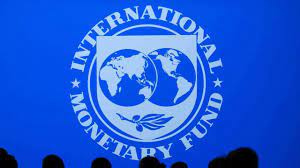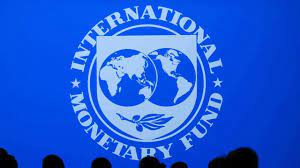
Interest rate hikes by the Federal Reserve could "throw cold water" on already sluggish economic recovery in some nations, according to Kristalina Georgieva, managing director of the International Monetary Fund.
Georgieva said a hike in US rates might have substantial ramifications for countries with higher levels of dollar-denominated debt, speaking via videoconference at The Davos Agenda virtual event on Friday.
To avoid surprises, she said it was "very crucial" for the Fed to communicate its policy plans clearly. Higher US interest rates might make servicing dollar-denominated debt more expensive for countries.
The message of the IMF, according to Georgieva, to countries with high levels of dollar-denominated debt was: “Act now. If you can extend maturities, please do it. If you have currency mismatches, now is the moment to address them.”
She went on to say that her main concern is for low-income nations with high debt levels, pointing out that two-thirds of them are either in "debt distress" or on the verge of falling into it, up from half in 2015.
Georgieva stated that the IMF expects the global economic recovery to continue, but that it is "losing some momentum."
As a result, she proposes that legislators make "policy flexibility" a New Year's resolve.
She said that “2022 is like navigating an obstacle course” when considering the risks such as rising inflation, the Covid-19 pandemic, and high debt levels. A warning from the IMF in December said that the total global debt had touched $226 trillion in 2020 — which was the biggest single-year rise since World War II.
In terms of inflation, Georgieva emphasized that it is a country-specific issue. In a number of nations, prices are growing at breakneck speed: eurozone inflation set a new high of 5% in December, UK inflation touched a 30-year high in the same month, and the US consumer price index grew at its quickest rate since June 1982.
“That country specificity is what makes 2022, in a way, even more, difficult than 2020,” Georgieva said.
“In 2020, we had similar policies everywhere because we were fighting the same problem — an economy in a standstill. In 2022, conditions in countries are very different, so we cannot anymore have the same policy everywhere, it has to be country-specific and that makes our job in 2022 so much more complicated.”
(Source:www.cnbc.com)
Georgieva said a hike in US rates might have substantial ramifications for countries with higher levels of dollar-denominated debt, speaking via videoconference at The Davos Agenda virtual event on Friday.
To avoid surprises, she said it was "very crucial" for the Fed to communicate its policy plans clearly. Higher US interest rates might make servicing dollar-denominated debt more expensive for countries.
The message of the IMF, according to Georgieva, to countries with high levels of dollar-denominated debt was: “Act now. If you can extend maturities, please do it. If you have currency mismatches, now is the moment to address them.”
She went on to say that her main concern is for low-income nations with high debt levels, pointing out that two-thirds of them are either in "debt distress" or on the verge of falling into it, up from half in 2015.
Georgieva stated that the IMF expects the global economic recovery to continue, but that it is "losing some momentum."
As a result, she proposes that legislators make "policy flexibility" a New Year's resolve.
She said that “2022 is like navigating an obstacle course” when considering the risks such as rising inflation, the Covid-19 pandemic, and high debt levels. A warning from the IMF in December said that the total global debt had touched $226 trillion in 2020 — which was the biggest single-year rise since World War II.
In terms of inflation, Georgieva emphasized that it is a country-specific issue. In a number of nations, prices are growing at breakneck speed: eurozone inflation set a new high of 5% in December, UK inflation touched a 30-year high in the same month, and the US consumer price index grew at its quickest rate since June 1982.
“That country specificity is what makes 2022, in a way, even more, difficult than 2020,” Georgieva said.
“In 2020, we had similar policies everywhere because we were fighting the same problem — an economy in a standstill. In 2022, conditions in countries are very different, so we cannot anymore have the same policy everywhere, it has to be country-specific and that makes our job in 2022 so much more complicated.”
(Source:www.cnbc.com)





